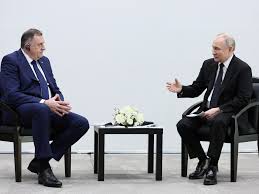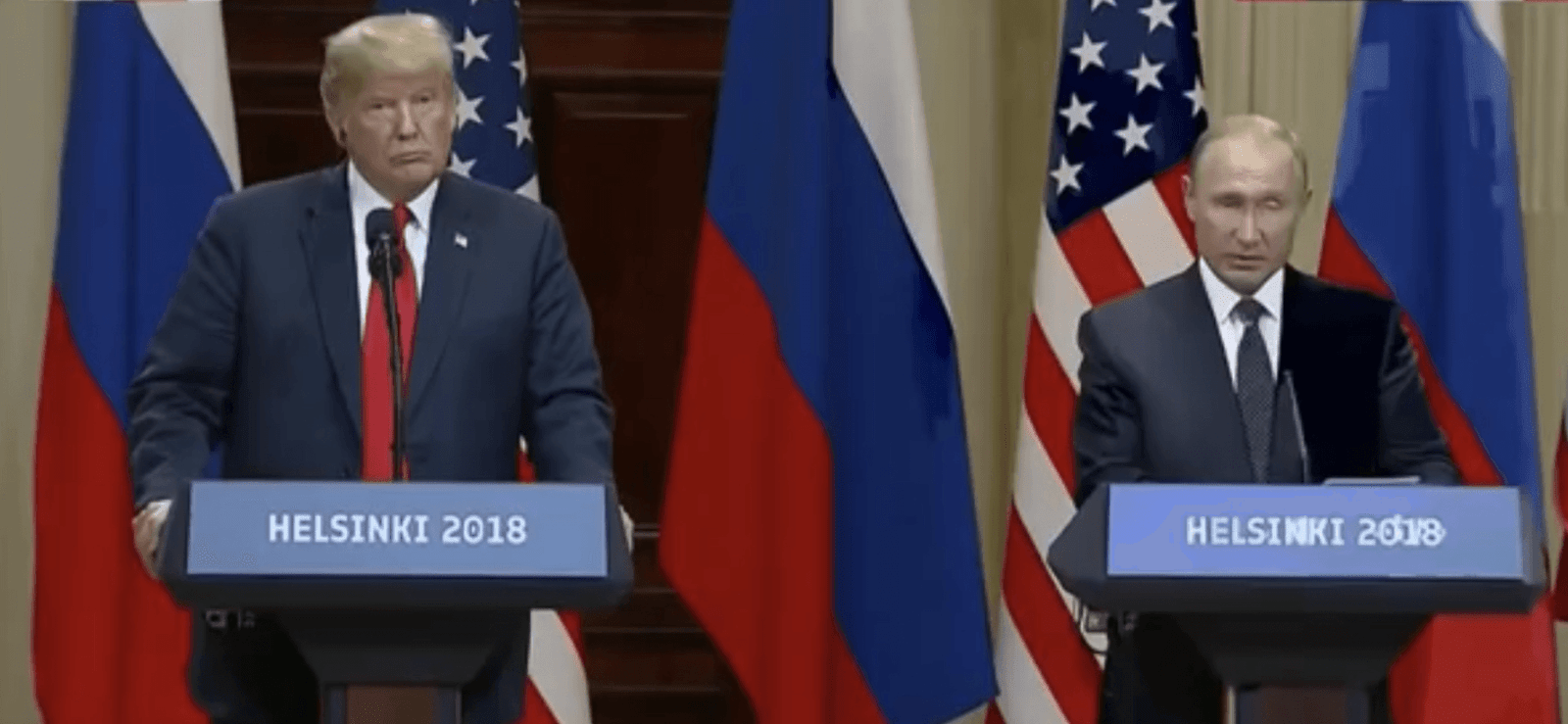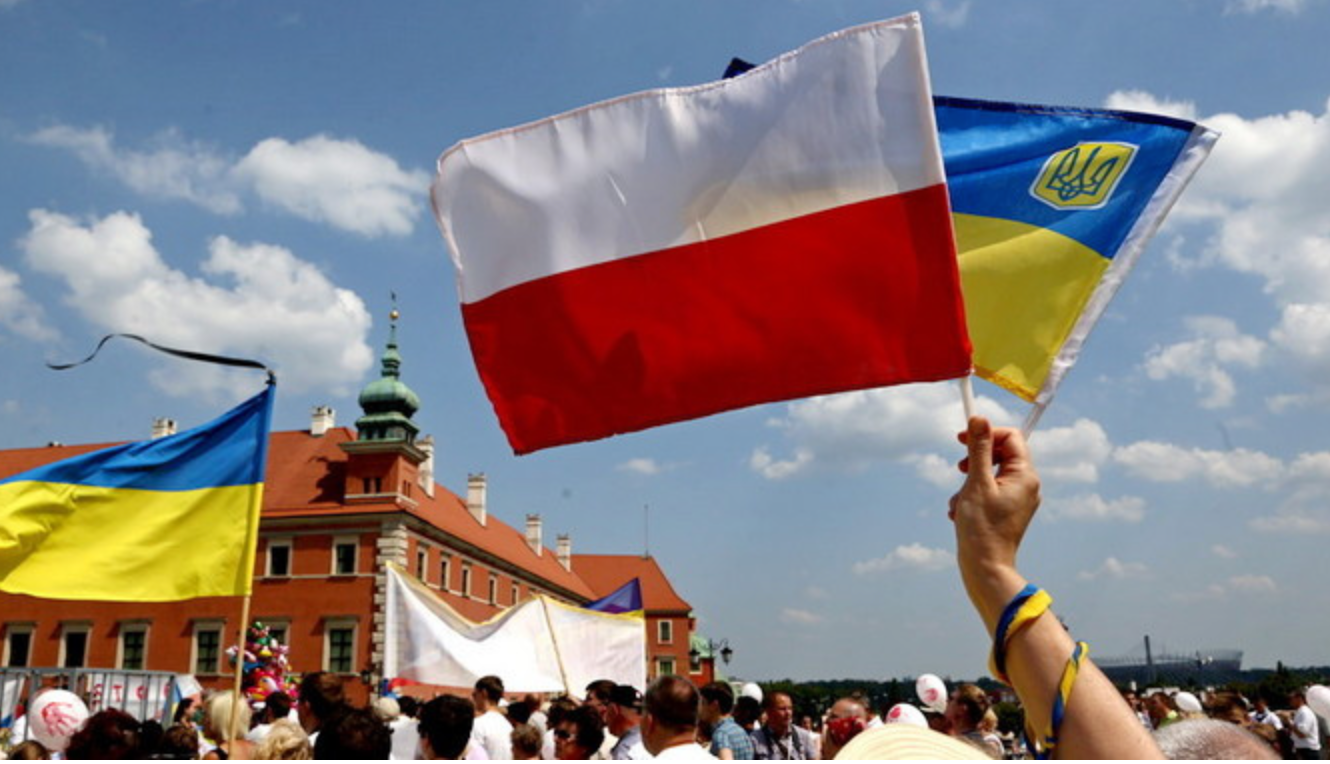The policies of the Joe Biden presidency have prolonged and deepened conflicts in Europe’s east and in the western Balkans. The current US administration, much like its predecessors, was unprepared for Moscow’s aggressive pursuit of its expansionist “Russian world” agenda as well as its Serbian equivalent. It misjudged the security implications of spreading conflicts, failed to stymie the aggressors, and is now responsible for the consequences.
Russia’s expanded attack on Ukraine should not have come as a surprise, as Moscow had been preparing the offensive for several years prior to the massive invasion in February 2022. Its seizure of Crimea and half of the Donbas in 2014 was simply the beginning of a more comprehensive campaign to eliminate Ukraine’s independence and it highlighted the indecisive Western reaction. Although US intelligence services did reveal in advance that Russia’s full-scale invasion was imminent, policy makers failed to rapidly provide Kyiv with all necessary weapons to defeat the invader.
The bungled US approach toward defending Ukraine was based on two false premises. First, officials were convinced that Moscow would seek an “off ramp” from the war because of international condemnation accompanied by damaging economic and financial sanctions. And second, policy makers concluded that providing Ukraine with the most lethal modern weaponry would lead to “escalation” and provoke Moscow into attacking the West or using tactical nuclear weapons against Ukraine. Instead, Moscow viewed the largely token sanctions as an indication of Western weakness and the slow provision of weapons to Ukraine as emblematic of pronounced Western fears of Russia.
Ukraine’s fighting capabilities, social resilience, and military adaptation during the Russian invasion stunned the White House. Top US officials and advisers in the National Security Council, Pentagon, State Department, and CIA expected Kyiv to sue for a ceasefire given the allegedly overwhelming potential of Russia’s military forces. Instead, Ukraine again demonstrated that a nation determined to survive and preserve its statehood cannot be easily defeated, especially by a deeply corrupted and obsolete imperial Russian state that itself faces internal rupture.
The Biden team has continued to prohibit Ukraine from using Western weapons to destroy legitimate targets inside Russia. This is the equivalent of disallowing Washington from seeking to eliminate Osama bin Laden in Pakistan after the 9/11 al Qaeda attacks on US territory. As a result, Moscow has been able to amass its forces for new strikes on Ukrainian territory and continue its daily terrorist bombings of Ukrainian cities. Kyiv is grateful for the crucial military aid it has received from numerous governments over the past two years. However, it also asserts that by using long-range weapons that can reach Russian territory Moscow’s military would now be dislodged from most of Ukraine, as its umbilical cord of equipment, ammunition, fuel, and other essential supplies would be decimated.
In effect, the war has been prolonged by White House short-sightedness and its fear of outright conflict with Russia. In reality, all evidence indicates that Moscow is in no position to intensify hostilities by attacking NATO in a conventional war. Its warnings of red lines have proven to be hollow. Instead, it engages in influence operations, financial corruption, and sabotage missions to divide the Western democracies and reduce their resolve to help Ukraine. Even the US Secretary of State now realizes that prohibiting Kyiv from striking military targets inside Russia is counter-productive and increases civilian casualties. This risk averse policy is slowly being altered, but ultimately the US National Security Advisor and CIA director need to discard outdated preconceptions about Russia’s power that obstructs Ukraine from achieving more victories to liberate its lands.
In the western Balkans, the Biden administration strategy has proven to be an even greater failure. The appeasement of the Vučić government has intensified Belgrade’s ambitions, estranged America’s allies in Bosnia-Herzegovina, Kosova, and Montenegro, and helped to open the door to destructive Russian and Chinese influences. Washington is now less trusted in the region than at any time in recent history, while the appeasement strategy has reversed much of the progress achieved since the collapse of Yugoslavia in the 1990s.
In sum, the Biden team, particularly its special envoys and ambassadors in the western Balkans, have encouraged Belgrade’s ambitions by tolerating concessions over the recognition of Kosova and over Bosnia’s state integrity. The Vučić regime calculates that time works in its favor in restoring Serbia’s regional hegemony. This has also emboldened Milorad Dodik’s Republika Srpskato threaten secession and test Western reactions. And it has encouraged Serbian nationalist politicians in Montenegro to push their agenda through parliament. All these political players calculate that the US will be increasingly preoccupied with other regional crises and will pay less attention to the western Balkans after America’s November elections. They also believe that similarly to its policy toward Russia, Washington will be careful not to antagonize Serbia for fear of provoking another armed conflict in Europe.
The irrational fear of conflict escalation (“escalaphobia”) has become a psychological device deployed by both Moscow and Belgrade to weaken US resolve and gain advantages for their expansionist policies. In reality, an exaggerated fear of provoking armed conflict has exactly the opposite effect. Adversaries will deliberately stoke that fear to pursue their own objectives with little concern about any negative repercussions for themselves. When Washington announces that it will restrict its involvement to avoid being pulled into war, its rivals becomes more confident. For a major power to prevail it must be able to discard any irrational fears, project its own strengths, and exploit the vulnerabilities of its adversaries. Moreover, when a US administration lacks vision and clarity over its international security goals, then it cannot develop an effective policy to achieve them.
Janusz Bugajski is a Senior Fellow at the Jamestown Foundation in Washington DC. His recent book is Failed State: A Guide to Russia’s Rupture. His new book published in the fall is titled Pivotal Poland: Europe’s Rising Power.














